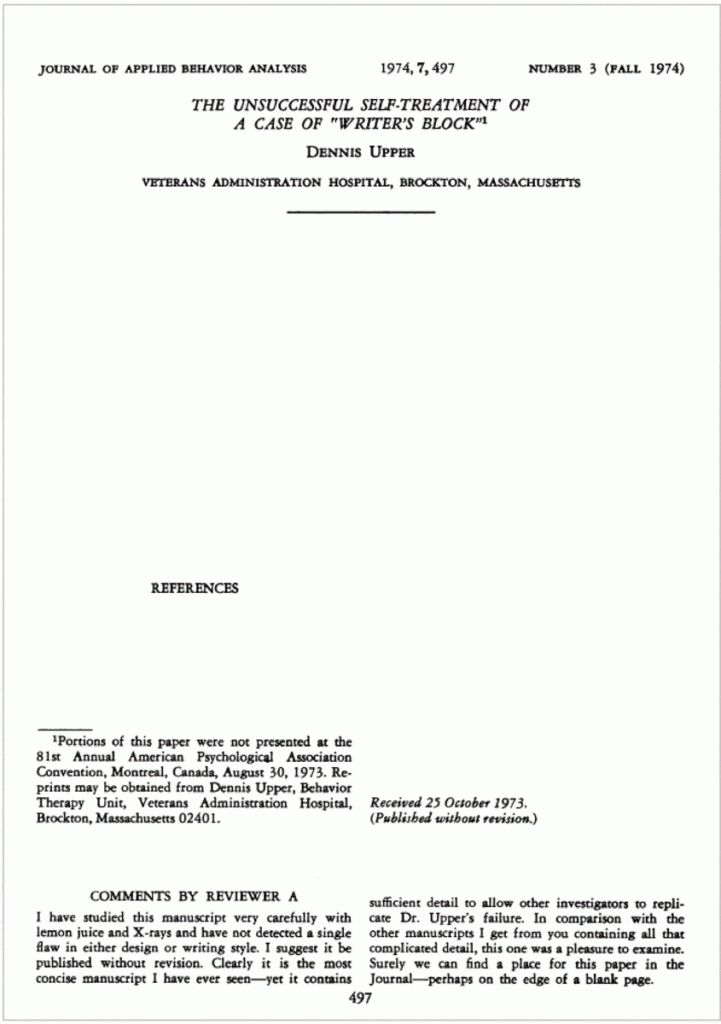“Depression,” the TED-Ed video above informs us, “is the leading cause of disability in the world.” This may be a hard fact to swallow, the product, we might think, of pharmaceutical advertising. We all feel down from time to time, we think. “Then circumstances change, and those sad feelings disappear.” Isn’t it like this for everyone? It is not. “Clinical depression is different. It’s a medical disorder, and it won’t go away just because you want it to.”
Depression can linger for up to two weeks, and become so debilitating that sufferers cannot work or play. It interferes with important relationships and “can have a lot of different symptoms: a low mood, loss of interest in things you’d normally enjoy, changes in appetite, feeling worthless or excessively guilty,” restlessness and insomnia, or extreme lethargy, poor concentration, and possible thoughts of suicide. But surely we can hear a paid promotional voice when the narrator states, “If you have at least 5 of those symptoms, according to psychiatric guidelines, you qualify for a diagnosis of depression.”
What we don’t typically hear about in pharmaceutical ads are the measurable physiological changes depression writes in the brain, including decreased brain matter in the frontal lobe and atrophy of the hippocampus. These effects are measurable in humans and rats, in study after study after study. But while most of us know the names of a neurotransmitter or two these days, not even neuroscientists fully understand the biology of depression. They do know that some combination of medication, therapy, and, in extreme cases electroconvulsive treatment, can allow people to more fully experience life.
People in treatment will still feel “down” on occasion, just like everyone does. But depression, the explainer wants us to understand, should never be compared to ordinary sadness. Its effects on behavior and brain health are too wide-ranging, pervasive, persistent, and detrimental. These effects can be invisible, which adds to an unfortunate social stigma that dissuades people from seeking treatment. The more we talk about depression openly, rather than treating as it as a shameful secret, the more likely people at risk will be to seek help.
Just as depression cannot be alleviated by trivializing or ignoring it, the condition does not respond to being romanticized. While, indeed, many a famous painter, poet, actor, etc. has suffered from clinical depression—and made it a part of their art—their examples should not suggest to us that artists shouldn’t get treatment. Sadness is never trivial.
Unlike physical pain, it is difficult, for example, to pinpoint the direct causes of sadness. As the short video above demonstrates, the assumption that sadness is caused by external events arose relatively recently. The humoral system of the ancient Greeks treated all sadness as a biological phenomenon. Greek physicians believed it was an expression of black bile, or “melaina kole,” from which we derive the word “melancholy.” It seems we’ve come full circle, in a way. Ancient humoral theorists recommended nutrition, medical treatment, and physical exercise as treatments for melancholia, just as doctors do today for depression.
But melancholy is a much broader term, not a scientific designation; it is a collection of ideas about sadness that span thousands of years. Nearly all of those ideas include some sense that sadness is an essential experience. “If you’ve never felt melancholy,” the narrator says, “you’ve missed out on part of what it means to be human.” Thinkers have described melancholia as a precursor to, or inevitable result of, acquiring wisdom. One key example, Robert Burton’s 1621 text The Anatomy of Melancholy, “the apogee of Renaissance scholarship,” set the tone for discussions of melancholy for the next few centuries.
The scientific/philosophical/literary text argues, “he that increaseth wisdom, increaseth sorrow,” a sentiment the Romantic poets turned on its head. Before them came John Milton, whose 1645 poem Il Penseroso addresses melancholy as “thou Goddes, sage and holy… Sober, stedfast, and demure.” The deity Melancholy oversees the contemplative life and reveals essential truths through “Gorgeous Tragedy.”
One of the poem’s loftiest themes showed the way forward for the Romantics: “The poet who seeks to attain the highest level of creative expression must embrace the divine,” write Milton scholars Katherine Lynch and Thomas H. Luxon, “which can only be accomplished by following the path set out in Il Penseroso.” The divine, in this case, takes the form of sadness personified. Yet this poem cannot be read in isolation: its companion, L’Allegro, praises Mirth, and of sadness says, “Hence loathed Melancholy / Of Cerberus, and blackest midnight born, in Stygian Cave forlorn / ‘Mongst horrid shapes, and shrieks, and sights unholy.”
Rather than contradict each other, these two characterizations speak to the ambivalent attitudes, and vastly different experiences, humans have about sadness. Fleeting bouts of melancholy can be sweet, touching, and beautiful, inspiring art, music, and poetry. Sadness can force us to reckon with life’s unpleasantness rather than deny or avoid it. On the other hand, in its most extreme, chronically intractable forms, such as what we now call clinical depression, sadness can destroy our capacity to act, to appreciate beauty and learn important lessons, marking the critical difference between a universal existential condition and a, thankfully, treatable physical disease.
Related Content:
Stanford’s Robert Sapolsky Demystifies Depression, Which, Like Diabetes, Is Rooted in Biology
How Baking, Cooking & Other Daily Activities Help Promote Happiness and Alleviate Depression and Anxiety
A Unified Theory of Mental Illness: How Everything from Addiction to Depression Can Be Explained by the Concept of “Capture”
Stephen Fry on Coping with Depression: It’s Raining, But the Sun Will Come Out Again
Josh Jones is a writer and musician based in Durham, NC. Follow him at @jdmagness



